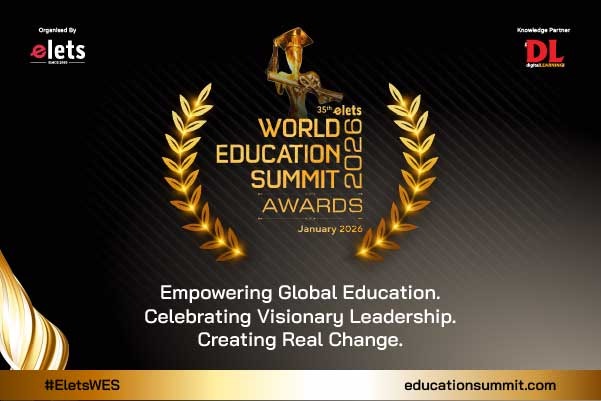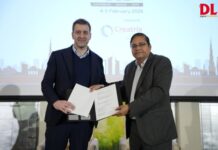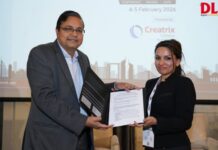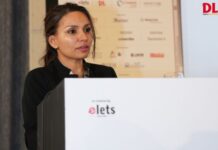
My Journey as an Educator and Bridge-Builder
I like to define myself as a polyglot educator, a bridge-builder, an eternal learner, and a passionate believer in the power of encounters. Over the past three decades, my work has been guided by a simple conviction: education is at its best when it empowers people to see the world through one another’s eyes. This belief has inspired me to design initiatives that combine language, culture, service, and reflection—elements that can transform individuals into social actors and global citizens who build more peaceful communities.
My path has been a continuous process of learning, experimenting, and connecting across borders. At its heart lies the conviction that education should not be confined to the classroom; it should extend into communities, foster democratic competences, embrace digital transformation, and cultivate intercultural dialogue. In Italy, this has often meant overcoming resistance to change. My dream was to bring back what I had learned abroad and create an independent Institute able to put innovations into practice quickly. It was not an easy path: we faced prejudice and obstacles before being recognized as a center of excellence. Recognition came first from the US, then from Europe, and only later from Italy. In the end, this represents the realization of my dream—to bring to Italy what I have learned in the world.
A turning point came with my first encounters with the service-learning pedagogy—at Swarthmore College in 2001 and later at the IPSL Conference in South Dakota in 2005. Until then, I had been focused on intercultural education and language learning, but service-learning showed me how academic study could be linked with the lived realities of communities. I realized it had the potential to connect American students with Europe’s multilingual and multicultural reality in ways far beyond traditional study abroad programs.
At that time, I was also inspired by the work of Linda Chisholm and Nevin Brown, whose vision of connecting learning with community engagement resonated with me. Later, Andy Furco’s definition of service-learning—emphasizing its dual focus on academic learning and community benefit—became a reference point. Collaborations with IPSL and IARSLCE further strengthened my commitment, situating my work within a growing global movement.
In this sense, I can be considered a pioneer of service-learning in Italy, introducing and adapting this pedagogy at a time when it was still largely unknown. This early commitment, carried forward with determination, has often been recognized as a pioneering step that opened the way for the diffusion of service-learning in Italian higher education. My work has consistently aimed to show that service-learning is not an “add-on” but a transformative approach that shapes curricula, fosters civic engagement, and builds bridges between higher education and society.
Founding SIS and Developing Innovative Models
In 2004 I founded SIS Intercultural Study Abroad in Siena, later expanding it to Brussels. My vision for SIS was to integrate language learning with meaningful community engagement. Unlike traditional study abroad models often focused on cultural tourism, SIS was designed as a platform for encounters: students worked with local associations, contributed to projects, and reflected critically on their experiences.
Over the years, SIS has grown into a laboratory for innovation in international education. Within this framework, I refined the Full-Immersion: Culture, Content, and Service (FICCS) approach and the RICA Model—Reflection to Intercultural Competence Assessment, offering students opportunities to learn language in authentic contexts while cultivating civic and intercultural competences.
Drawing on service-learning pedagogy, I came to believe that many students fail to progress in intercultural competence because of a lack of structured reflection. Some reflect naturally, but many experiences remain superficial unless guided. By systematically assessing journals, I found we could better measure intercultural growth while also fostering sensitivity and awareness in learners.
The expansion to Brussels opened new doors, making SIS a hub for European collaboration. Brussels also offered a unique environment of superdiversity—a context where multiple nationalities, languages, and migration histories intersect daily. Working in such a city has made SIS not only a place of study abroad but also a laboratory where students directly experience the challenges and opportunities of plural societies. This has strengthened our focus on intercultural competences, social inclusion, and democratic engagement.
European Collaborations and Frameworks
My research and practice have engaged deeply with European initiatives promoting democratic and digital competences. A milestone was my contribution to the EUFICCS project (European Use of Full-Immersion, Culture, Content, and Service), which united universities and institutions across Europe to design methodologies embedding service-learning and intercultural education into higher education curricula.
I was also honored to serve as an external reviewer for the Council of Europe’s Reference Framework of Competences for Democratic Culture (RFCDC). This allowed me to align my work with the broader European agenda of democratic competences. Building on this, I contributed to the DCDC project (Developing Competences for Democratic Culture), which sought to translate the RFCDC into practical models and pedagogical strategies.
In revising the EUFICCS methodology, I drew directly on the RFCDC and DCDC, ensuring that the model reflected the values of democracy, human rights, and intercultural understanding. While originally rooted in on-the-ground encounters, the updated model also integrates the opportunities and challenges of the virtual field, addressing both real and digital contexts and aligning intercultural reflection with virtual learning and collaboration.
Parallel to this, I co-authored resources such as TOGETHER and DiCE.Lang, which embed reflective, intercultural, and digital pedagogies into classrooms. These tools help educators integrate democratic competences and digital literacy into teaching. In the field of digital education, I have engaged with the main European frameworks for digital competence, including:
- DigComp: outlining essential competences for life, work, and social participation.
- DigCompEdu: supporting teachers in digital pedagogy.
- DigCompOrg: guiding institutions in digital transformation.
- DigCompConsumers: enabling citizens to make informed choices.
- SELFIE for schools’ self-assessment.
Beyond applying these frameworks, I undertook comparative research on their complementarities. A key outcome is the article co-authored with Fiora Biagi and Isabelle Thaler, “Comparing European Frameworks of Digital Competence: Towards an Integrated Approach” (2021, Media Education). In it, we examined how the frameworks overlap, diverge, and can be strategically aligned to strengthen both democratic and digital competences.
By aligning my work with these frameworks, I have situated my innovations within a broader European movement connecting democratic culture with digital transformation. This ensures that educational strategies respond to both real-world and virtual contexts, preparing learners and educators to navigate seamlessly between them. This phase was also enriched by my participation in CULTNET, a European network fostering intercultural dialogue, and by the inspiring support of Martyn Barrett. With him and the group on values, I am currently engaged in a project on intercultural values, linking my long-standing work on service-learning and democratic competences with cutting-edge European research and policy.
From Academia to Community Engagement
While much of my work has taken place in academia, I have always believed education must remain connected to communities. This conviction led me to found Associazione Ulisse and later the Nuova Associazione Ulisse, a non-profit committed to intercultural dialogue and social inclusion. Through Ulisse, I launched initiatives such as Home4theWorld and Progetto MILAGRO, both funded by the EU’s CERV programme (Citizens, Equality, Rights and Values). These projects fostered democratic competences, storytelling, and engagement, connecting partners in Italy, the Netherlands, and Serbia, while also creating spaces of belonging with immigrant communities. Importantly, they unfolded across both real-world and virtual contexts, showing how community engagement today takes place in hybrid spaces that link local realities with digital networks.
One of the most transformative experiences has been my work with the Pashtun refugee community in Siena. What began as local engagement soon became a personal journey. Through long-term relationships with members of this community, I came to understand more deeply what it means to belong, to be uprooted, and to search for identity in unfamiliar contexts. These encounters reshaped not only my research but also my sense of self—as an educator and as a human being.
Digital Transformation and the Future of Education
In recent years, my research has increasingly focused on digital transformation in higher education. This includes exploring Collaborative Online International Learning (COIL), where students from different countries work together virtually, and virtual service-learning, which adapts community engagement to online formats. The COVID-19 pandemic accelerated the need for such approaches, but I see them not as temporary solutions but as opportunities to rethink education in more inclusive, sustainable, and globally connected ways.
I am also exploring the potential of artificial intelligence in education. Rather than seeing AI as a threat, I believe it can be a powerful ally if used critically and responsibly. AI can personalize learning, support reflection, and expand access to resources, but it must always be guided by ethical principles and aligned with intercultural and democratic competences.
Beyond tools, digital transformation must be understood as a cultural change. It requires educators, institutions, and communities to rethink roles, relationships, and values in the learning process. This is why I have sought to use European frameworks not just as references but as living instruments connecting innovation with civic responsibility, intercultural dialogue, and democratic resilience. For me, the digital future of education is not about technology alone, but about how it can serve human encounters, inclusion, and justice.
Reflections on Leadership
Leadership in education, for me, has never been about titles or positions. It has been about creating spaces where people can meet, reflect, and grow together. Whether through founding SIS, collaborating on European projects, engaging with refugee communities, or contributing to digital frameworks, my aim has always been to build bridges—between disciplines, communities, and individuals.
The recognition of being nominated for the Education Impact Leadership Award is therefore not only a personal honor but also recognition of the countless students, educators, and community members who have walked this path with me. Their stories, challenges, and transformations are the true measure of impact.
My idea of leadership is rooted in service: listening deeply, connecting people and ideas, and creating safe and generative spaces where innovation can flourish. I see myself as a facilitator more than a leader in the traditional sense, someone who nurtures communities of practice and helps others find their own voice. Over time, I have learned that the most enduring impact comes not from individual achievements but from collective journeys that build a shared culture of responsibility and hope.
Looking Forward
As I look to the future, I see three major challenges and opportunities:
- Embedding service-learning more deeply in higher education, ensuring it is recognized not as an “add-on” but as a core approach fostering democratic and intercultural competences.
- Guiding digital transformation with ethical and intercultural lenses, so that technologies like AI empower learners rather than divide them.
- Strengthening communities of practice across Europe and beyond, building networks that connect educators, researchers, policymakers, and community organizations.
I remain convinced that education can change the way people see the world, and that by building bridges across divides, we can create spaces of belonging, justice, and hope.
Views Expressed: Lavinia Bracci, Founder & Director, SIS Intercultural Study Abroad Italy






















